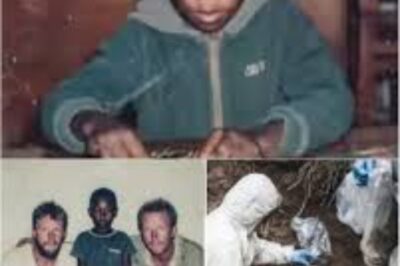The Forgotten Children of Mexico
The dusty streets of Ciudad Juárez were alive with the hum of life. Vendors shouted out their wares, children dashed through alleyways playing games, and the occasional roar of a motorcycle broke the rhythm of the afternoon. Amid this chaos, in a modest home tucked away from the bustling streets, a story of heartbreak and redemption was about to unfold.
María Elena was a woman of quiet strength. At 35, she had seen more than her fair share of hardship. Her husband had died in a factory accident years ago, leaving her alone to raise her son, Diego. Life had been difficult, but María had always believed in the power of love and perseverance. She worked tirelessly as a seamstress, patching together the fabric of her life as she did the clothes of her neighbors.
But her world shifted when she was hired by the wealthy family of the Reyes to care for their two young children, Camila and Mateo. The Reyes were known for their opulence and their absence. Their sprawling mansion was filled with silence, broken only by the laughter of the children and the occasional clink of glasses during one of their extravagant parties.
María was hired as a nanny, but she quickly realized her role was far more significant than that. From the moment she stepped into the Reyes home, Camila and Mateo clung to her like she was the only stable force in their lives. Their mother, Valeria, was always away—at parties, on vacations, or immersed in the glamorous world of social media. Their father, Arturo, was a businessman whose presence was felt only through the occasional phone call or the lingering scent of his cologne on the furniture.
Camila was just five, with wide brown eyes that seemed to hold the weight of the world. Mateo, at eight, was quiet and reserved, his only outlet being the books he devoured late into the night. María noticed the hunger in their eyes—not for food, but for attention, for affection, for the kind of love that only a parent could provide.
One evening, as María was tucking Camila into bed, the little girl reached out and touched her face. “Are you my mamá?” she asked, her voice trembling. María’s heart broke. She smiled gently and said, “No, mi amor. Your mamá loves you very much.” But even as she said the words, she knew they rang hollow.
The days turned into weeks, and María became more than a nanny. She became their confidante, their protector, their source of comfort in a world that often felt cold and unkind. She learned that Mateo bit his nails when he was anxious, and that Camila drew pictures of families that always included María as the mother.
One rainy night, Camila fell ill with a high fever. María called Valeria repeatedly, but her calls went unanswered. Desperate, she took Camila to the hospital herself, holding the little girl close as she whispered prayers under her breath. When Valeria finally arrived hours later, she was furious—not about Camila’s condition, but about the inconvenience. “You should have waited,” she snapped. “She’s just a child; she’ll recover.”
María didn’t respond. She simply held Camila tighter, her resolve growing stronger.
As the months passed, María began to notice the cracks in the Reyes family. Valeria’s obsession with appearances masked a deep insecurity, and Arturo’s absence was a symptom of a marriage that was falling apart. But María also saw hope—in the laughter of the children, in the moments when Valeria let her guard down, and in the quiet strength that Mateo displayed despite his young age.
One day, Mateo came home from school with a drawing he had made. It was a picture of María, Camila, and himself, standing together under a bright sun. “This is our family,” he said simply. María felt tears welling up in her eyes.
But the turning point came when Valeria’s social media post—a glamorous photo of her sipping champagne on a beach—went viral. The comments were filled with admiration for her beauty and lifestyle, but María couldn’t help but feel the emptiness behind the image. That night, as María sat with the children, she made a decision.
The next morning, María confronted Valeria. “Your children need you,” she said firmly. “They don’t need your money or your parties. They need your love.” Valeria was taken aback, but something in María’s words struck a chord.
Over the following weeks, Valeria began to change. She started spending more time at home, learning to cook meals with María and sitting down to read bedtime stories to her children. Arturo, too, began to make an effort, taking Mateo to soccer games and helping Camila with her homework. It wasn’t easy, and there were many missteps along the way, but the Reyes family slowly began to heal.
And María? She stayed with them, not as a nanny, but as a beloved friend and mentor. She watched as Camila and Mateo blossomed under the love of their parents, and she felt a deep sense of fulfillment knowing she had played a part in their transformation.
Years later, when María opened her own sewing shop in the heart of Ciudad Juárez, she received a visit from the Reyes family. Camila was now a teenager, and Mateo was preparing for college. They hugged María tightly, thanking her for the love and guidance she had given them.
As María watched them leave, she felt a warmth in her heart. She had given them her love, and in return, she had found a family—not by blood, but by bond.
News
UNA EMPLEADA DE LIMPIEZA ESCUCHÓ LA CONFESIÓN DE LA NOVIA MINUTOS ANTES DE LA BODA Y…
Una empleada de limpieza escuchó la confesión de la novia minutos antes de la boda. Lo que hizo después dejó…
Una familia negra desapareció durante un viaje por carretera en 1982. Veinte años después, encontraron algo en el bosque…
Temprano en la mañana del 17 de junio de 1982, la familia del reverendo Elijah Stokes, su esposa Clarice y…
Una pareja adoptó a un niño negro en 2016— Un año después, su esqueleto fue encontrado enterrado detrás de su casa.
Un Caso Trágico de Adopción: El Misterio que Sacudió a una Comunidad Beverly Hills, CA – En 2016, una pareja de…
Nos han engañado y la escalofriante verdad detrás del romántico “Valle Arcoíris” del Everest: escaladores que nunca regresan – almas perdidas para siempre en la montaña
Enclavado cerca de la cima del Monte Everest, a lo largo de la arista noreste, se encuentra Rainbow Valley, un…
RESCATE MILAGROSO Momento increíble en que una niña desaparecida de 10 años es encontrada acurrucada en el bosque después de una frenética búsqueda de 24 horas utilizando un dron con imágenes térmicas.
Miracle Rescue Incredible Momento desaparece, de 10 años, se encuentra acurrucado en bosques después de frenética búsqueda de 24 horas…
Mi marido se mudó a Barcelona con su amante mientras yo recogía a nuestro hijo. Luego regresó…
Esa tarde, la lluvia caía sin parar, golpeando el parabrisas de mi viejo Subaru al entrar en el aparcamiento de…
End of content
No more pages to load












